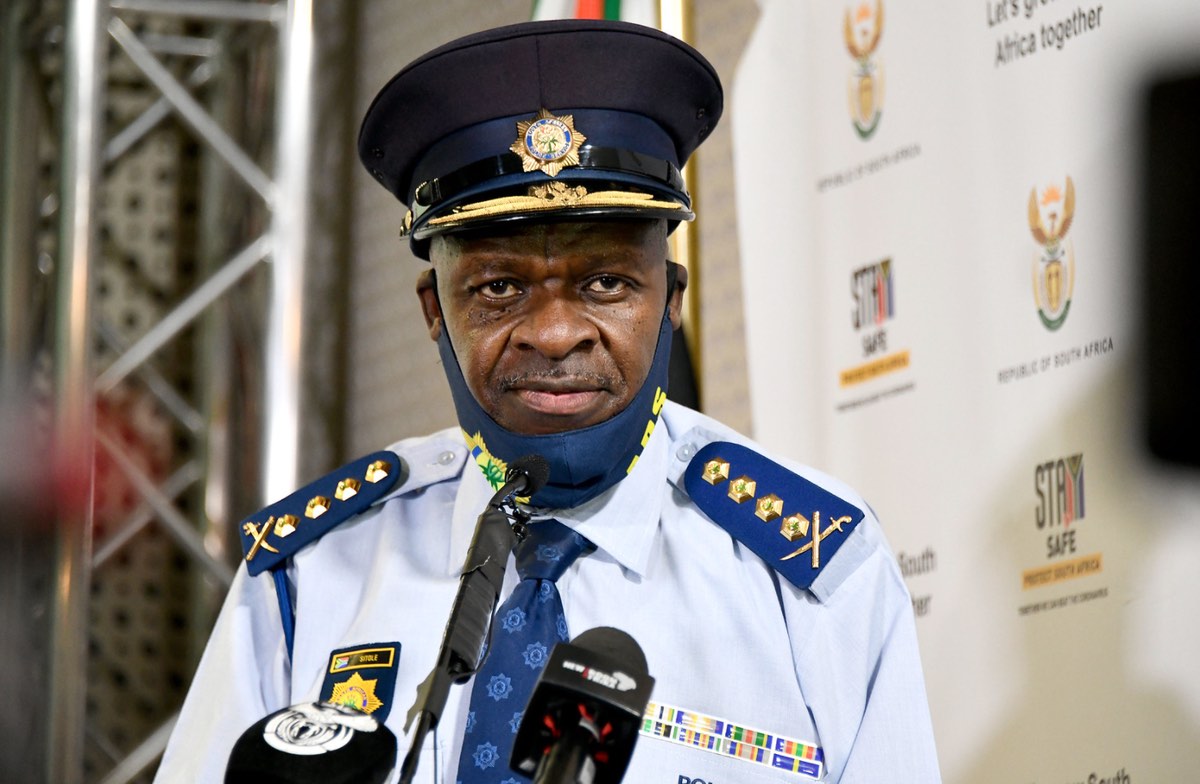Today, suspended National Commissioner, General Khehla Sitole appeared before the South African Human Rights Commission (SAHRC) hearings for the July unrest. He admitted the South African Police Service (SAPS) was overstretched and ill-prepared, and stated that the police service did not have the capacity or numbers to respond, in particular to the modus operandi used for the unrest. He went on to say that evidence showed it was extremely well-planned.
Interestingly, Sitole gave this testimony virtually as he currently in Turkey attending the Interpol conference.
Over the past decade, numerous articles have been written about the politicization of the SAPS. Many of these documented and highlighted the politics and power struggles within the SAPS which have distracted leaders and resulted in their inability to fight crime. The outbreak of chaos in July 2021 displayed the severe weakness of the police service when thousands raided malls, shutting down the country’s transport, supply chain, and logistic hubs. These events left many questioning police intelligence and its capabilities. Others believed that crime intelligence should have been able to detect this threat given its staff complement of 8,000 and its annual budget of R4 billion.
While the outbreak of chaos could have ushered in change, it, unfortunately, did not.
The organizational hierarchy is regrettably still filled with dysfunctionality which trickles down into the lower echelons of the organization. The internal disciplinary system of the SAPS is nearing collapse as internal disciplinary hearings have declined between 2012 and 2020. Most cases have been withdrawn due to lost evidence and / or witness’ failure to appear.
Fortunately, the Independent Police Investigative Directorate (IPID) has performed better. It has managed to open 47,984 cases against police officers between 2012 and 2020. Sadly, only 16% of these were police referrals, 2.3% ended in disciplinary action and 0.4% led to dismissals. When looking at the upper structures of the SAPS organization, one understands why. Eight people have held the position of the National Commissioner of the South African Police Service since 2009. This lack of continuity has resulted in persistent distrust, disorder, and chaos.
When former President Jacob Zuma appointed General Khehla Sitole as the National Commissioner of SAPS in November 2017, many believed that this would bring about change. This was regarded as a momentous appointment as Sitole became the first career police officer to occupy this position since the late President Nelson Mandela appointed George Fivas in 1995. This optimism soon died down as crime statistics remained high in the country despite annual budget increases. Between 2012 and 2019 the murder and robbery detection rate reduced by 28% and 23.4% respectively.
At least 55 people are being murdered in the country per day. In 2020, the Gallup Law and Order Index ranked South Africa as the fifth most dangerous country globally. The murder rate in the country has been compared to war zones in countries like Iraq, Syria, Yemen, Somalia, and Afghanistan as these countries have a daily death rate of 28 to 200 per 100,000 people.
Confidence in the security apparatus of the country dwindled even more when citizens saw the news surrounding the National Commissioner of the SAPS and his deputies Francinah Vuma and Leonard Tsumane. The trio were found “in breach of their duties” earlier this year when they refused to provide declassified documents to the IPID. “Rather than comply with their statutory duties as police officers willing to contribute to the investigation of crimes, they sought legal assistance and on this basis thwarted IPID’s investigation” said the Judge.
According to Polity, the case focused on a range of IPID corruption probes that include “classified information” on an alleged money laundering scheme. This alleged scheme sought to utilize public finances to buy votes during the 2017 Nasrec elective Conference. The investigation points towards an alleged attempt by the police Crime Intelligence Division to illegally buy R45-million worth of spyware. These devices are called “grabbers” and are said to intercept calls and messages.
Following several court case losses, President Ramaphosa and Police Minister Bheki Cele were asked to assess Sitole’s fitness for this position. On October 6, 2021, eNCA reported that Sitole had been served with a suspension notice. The Office of the Presidency confirmed “the intention to suspend Sitole and requested him to submit representations on why it should not proceed with the suspension”. Ramaphosa stated that the notice of suspension was related to the January court case that found Sitole in breach of his duties. As per Section 9 and 8 of the South African Police Service Act of 1995, it is deemed necessary to institute a “board of inquiry into the national commissioner’s alleged misconduct and fitness to hold the office of national commissioner of police”.
While this process plays out, we wonder: Will the police services continue to be politicized and cause internal rifts, or will those in power seek to strengthen the organization internally? The outcome remains to be seen.

